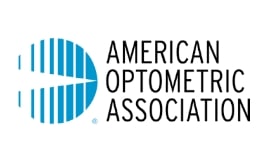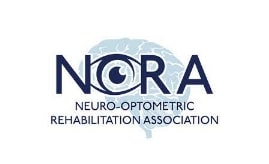Providing Clarity with Personalized Eye Care
Make an appointment today. Your future suddenly became a whole lot clearer.
Your Optometrist in Chalfont, PA.

Welcome to Spectrum Vision Care in Chalfont. Dr. Melissa Richard and the Spectrum Vision Care team strive to provide the finest in optometry services. We invite you to browse our website to learn more about our optometry services, and invite you to join our patient family by scheduling an eye exam appointment at our Chalfont office.
Spectrum Vision Care was founded in 2015 by Dr. Melissa Richard to provide comprehensive vision services to the Central Bucks and Montgomery County areas. We are committed to providing the latest technology combined with quality old-fashioned care in a historic Bucks County farmhouse.
Spectrum Vision Care is the only optometric practice in the area to offer both low vision and brain injury rehabilitation services in addition to routine eye exams, glasses and contact lenses.
Featured Services

Melissa Richard O.D. M.S
Doctor Of Optometry
Melissa Richard, O.D., M.S. earned her Doctor of Optometry and Masters Degree in Low Vision Rehabilitation from the Pennsylvania College of Optometry in 2006 where she graduated with Highest Honors. Prior to attending optometry school, she received her Bachelors Degree in Medical Technology from the University of Delaware. Dr. Richard’s clinical training focused on low vision rehabilitation as well as diagnosing, treating, and co-managing ocular diseases such as glaucoma, macular degeneration, and retinal disease.
Dr. Richard opened Spectrum Vision Care in 2016 to provide comprehensive and specialty eye care to patients in Bucks and Montgomery County. Dr. Richard does a lot of speaking and writing in the optometric field. She is a member of the Neuro-Optometric Rehabilitation Association (NORA) and is pursuing a Fellowship with the association. In addition to NORA, Dr. Richard is a member of the Bucks Montgomery Optometric Society, the Pennsylvania Optometric Association, and the American Optometric Association. She is the treasurer of the Warrington Rotary Club and a member of the Chalfont Lions Club.





Paul B. Johnson M.D.
Board Certified Ophthalmologist
Dr. Paul Johnson joined Spectrum Vision Care in May 2020. He is a board-certified ophthalmologist with subspecialty training in cosmetic and reconstructive oculoplastic surgery. He attended Johns Hopkins University and Jefferson Medical College. He completed his ophthalmology residency at the New York Eye & Ear Infirmary, and his oculoplastics fellowship at the Wills Eye Institute.
He performs facial rejuvenation procedures including upper and lower eyelid blepharopasty (eyelid lift/contouring), brow lifts, Botox injections, soft tissue fillers (Juvederm/Restylane), and non-invasive plasma pen treatments with meticulous attention to detail.
Shelley I. Cutler
OD, FAAO, FSLS
Dr. Shelley Cutler joined Spectrum Vision Care in February 2020. Her primary focus is on large-diameter oxygen permeable contact lenses. Dr. Cutler is a Fellow of the American Academy of Optometry (FAAO) and obtained her Diplomate in Cornea and Contact Lens. She is also a Fellow of the Scleral Lens Education Society (FSLS). She has lectured and conducted wet labs nationally, and internationally.
Over the last decade or so, Dr. Cutler has taken an interest in nutritional care for the eyes (and body). She now incorporates this in addressing the issues of lid disease, dry eye, and tear film insufficiencies in conjunction with overall eye health.

Photo Gallery
Check our real
before and after
cases of Spectrum
Vision patients

Current Specials
Spectrum Vision Care is proud to offer regular specials, check back to see what we have to offer!
Kind Words From Our Clients
I recently had a concussion that caused vision issues. I had double vision which made it difficult to read, use the computer, or watch TV. Even walking was a challenge. ...
Dr Richard has seen all the members of my family. She helped me find the right glasses for myself, saw my daughter when she was having headaches in school (though ...
Very friendly, professional staff. Doctor was personable and took the time to explain what everything was/did and answered all my questions! Highly recommend for any age!

